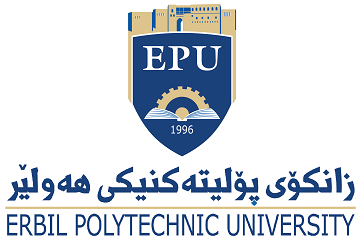Influences of polymer modifiers on Porous Hot Asphalt Mixture Property and Durability
DOI:
https://doi.org/10.25156/ptj.v10n2y2020.pp126-131Keywords:
Durability, Mechanical properties, Permeability, Polymer modifiers, Porous asphaltAbstract
Fundamentally, sustainability and cost-effectiveness in infrastructure development have received widespread attention. Permeable pavement is such a concept that it is sustainable in the field of transportation and is being tested. Fully permeable pavement is a modern design method in which each layer is porous and can store water, avoiding the impact of stormwater on the pavement to avoid stormwater, skidding, floods, and water splash on the road and parking area which decrease safety rate. Porous asphalt (PA) is an asphalt mixture with a little or no fine aggregate. Due to open structures and advantages are used as a drainage layer in highway pavements in reducing noise and decreasing safety hazards during rainfall. Besides, it reduces splash and spray effects and thus increases the visibility. The main aim of this study is to analyze the influence of two asphalt modifier types: Styrene butadiene styrene (SBS) and propylene modifier polypropylene (PP), on porous hot asphalt mixture performance. The PA evaluation influence findings are based on permeability, durability, and Marshall stability-flow for hot asphalt mixture. The test results emphasize the modifier usage in reducing the abrasion loss and increasing the stability with enhancing the durability of PA. PA mixture binder prepared with 4% SBS and 4% PP modifier was the most polymer binder in modifying the abrasion resistance and stability of mixture in pavements.
Downloads
References
Al-Jumaili, M. A. H. 2016. Laboratory evaluation of modified porous asphalt mixtures. Appl. Res. J. 8: 2-3.
Alvarez, A. E., A. E. Martin, C. K. Estakhri, J. W. Button, C. J. Glover and S. H. Jung. 2006. Synthesis of Current Practice on the Design, Construction, and Maintenance of Porous Friction Courses.
ASTM D113. 2017. Standard Test Method for Ductility of Bituminous Materials, Annual Book of Standards.
ASTM D92. 2018. Standard Test Method for Flash and Fire Points by Cleveland Open Cup Tester, Annual Book of Standards.
ASTM International. 2009. ASTM D70-09, Standard Test Method for Density of Semi-Solid Bituminous Materials (Pycnometer Method).
ASTM International. 2012. ASTM C128: Standard Test Method for Density, Relative Density (Specific Gravity), and Absorption of Fine Aggregate.
ASTM. 2001. ASTM C127-01: Standard Test Method for Density, Relative Density (Specific Gravity), and Absorption of Coarse Aggregate.
ASTM. 2006. Standard Test Method for Resistance to Degradation of Small-Size Coarse Aggregate by Abrasion and Impact in the Los Angeles Machine No. C131-06.
ASTM. 2013. Standard Test Method for Penetration of Bituminous Materials. ASTM International, USA.
ASTM. 2014. Standard Test Method for Softening Point of Bitumen (Ring-and-Ball Apparatus)
ASTM D6084. 2018. Standard Test Method for Elastic Recovery of Asphalt Materials by Ductilometer. ASTM International, West Conshohocken, PA.
Brasileiro, L., F. Moreno-Navarro, R. Tauste-Martínez, J. Matos and M. D. C. Rubio-Gámez. 2019. Reclaimed polymers as asphalt binder modifiers for more sustainable roads: A review. Sustainability. 11(3): 646.
Casey, D., C. McNally, A. Gibney and M. D. Gilchrist. 2008. Developmen of a recycled polymer modified binder for use in stone mastic asphalt. Resour. Conserv. Recycl. 52(10): 1167-1174.
Dalhat, M. A. and H. I. A. Wahhab. 2017. Performance of recycled plastic waste modified asphalt binder in Saudi Arabia. Int. J. Pavement Eng. 18(4): 349-357.
Gesoğlu, M., E. Güneyisi, G. Khoshnaw and S. İpek. 2014. Abrasion and freezing-thawing resistance of pervious concretes containing waste rubbers. Constr. Build. Mater. 73: 19-24.
Hagos, E. T. 2008. The Effect of Aging on Binder Properties of Porous Asphalt Concrete.
Khowshnaw, G. J. M. and S. M. S. Zebari. 2019. Evaluation and performance of fly ash in porous asphalt by using two sources of asphalt binder. Eurasian J. Sci. Eng. 4: 122-134.
Kraton. 2019. KRATONTM D1192 A Polymer. Kraton, Houston.
Lyons, K. R. and B. J. Putman. 2013. Laboratory evaluation of stabilizing methods for porous asphalt mixtures. Constr. Build. Mater. 49: 772-780.
Moore, L. M., R. Hicks and D. F. Rogge. 2001. Design, construction, and maintenance guidelines for porous asphalt pavements. Transp. Res. Rec. 1778(1): 91-99.
SABIC. 2019. SABIC PP 575P. SABIC, Riyadh.
Sasana, P., B. Ismanto and I. W. Diana. 2003. The influence of using local materials on quality of porous asphalt in Indonesia. In: Paper Presented at the Proceedings of the Eastern Asia Society for Transportation Studies.
Wurst III, J. E. and Putman, B. J. 2013. Laboratory evaluation of warm-mix open graded friction course mixtures. J. Mater. Civ. Eng. 25(3): 403-410.
Zhu, J., B. Birgisson and N. Kringos. 2014. Polymer modification of bitumen: Advances and challenges. Eur. Polym. J. 54: 18-38.
Downloads
Published
How to Cite
Issue
Section
License
Copyright (c) 2020 Mohammed Q. Ali, Ganjeena J. Khoshnaw

This work is licensed under a Creative Commons Attribution-NonCommercial-NoDerivatives 4.0 International License.
Authors who publish with this journal agree to the following terms:
1. Authors retain copyright and grant the journal right of first publication with the work simultaneously licensed under a Creative Commons Attribution License [CC BY-NC-ND 4.0] that allows others to share the work with an acknowledgment of the work's authorship and initial publication in this journal.
2. Authors are able to enter into separate, additional contractual arrangements for the non-exclusive distribution of the journal's published version of the work (e.g., post it to an institutional repository or publish it in a book), with an acknowledgment of its initial publication in this journal.
3. Authors are permitted and encouraged to post their work online (e.g., in institutional repositories or on their website) prior to and during the submission process, as it can lead to productive exchanges, as well as earlier and greater citation of published work (See The Effect of Open Access).






 Polytechnic Journal ; A Periodical Open Access Scientific Journal
Polytechnic Journal ; A Periodical Open Access Scientific Journal